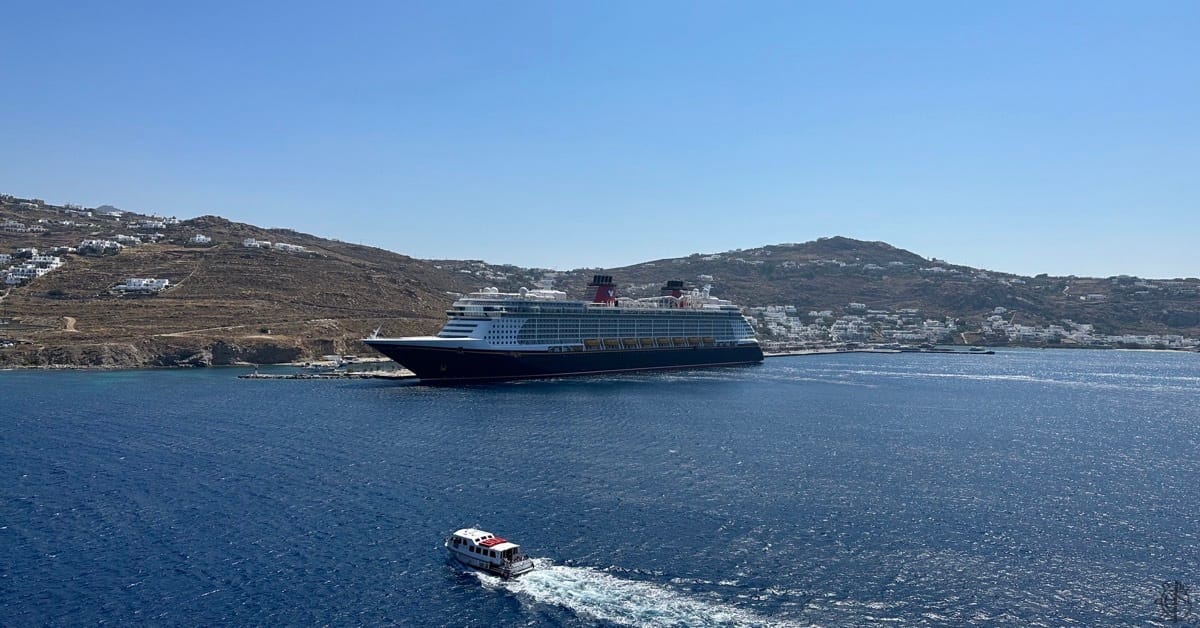Greece weighs cruise ship limits amid rising demand

Greece is at a turning point regarding cruise tourism as the government seeks to establish limits on the influx of cruise ships to popular destinations, especially in light of increased overtourism concerns. Recently, the Cruise Lines International Association (CLIA), which represents a significant portion of the cruise industry, has expressed a desire to continue expanding operations in Greece, prompting discussions around sustainable tourism and infrastructure upgrades.
The Growing Concern of Overtourism in Greece
Overtourism has become a pressing issue for many regions known for their rich history and stunning landscapes, and Greece is no exception. Islands like Santorini and Mykonos have been inundated with tourists, particularly cruise ship passengers, leading local officials and residents to voice concerns about the sustainability of their environment and economies.
In Santorini, for example, a recent report revealed that the island hosted as many as 17,000 cruise ship passengers in a single day. The resulting strain on local resources and infrastructure has led to calls for more stringent control over the number of visitors allowed on the islands.
Collaborative Efforts Between Government and Industry
Despite these concerns, representatives from CLIA are engaging with Greece's Minister of Maritime Affairs and Insular Policy, Christos Stylianidis. Their discussions have revolved around how to balance the economic benefits brought by cruise tourism with the need to protect local communities and environments.
Marie-Caroline Laurent, CLIA’s General Manager for Europe, emphasized the importance of protecting Greece’s unique character while capitalizing on its potential as a critical cruise destination in Europe. The association proposes a Cruise Industry Action Plan that outlines strategies for sustainable growth in the sector.
Infrastructure and Port Improvements
A significant focus of the negotiations is on improving and upgrading port infrastructure and services. Currently, the majority of cruise traffic is concentrated in Piraeus, the country's largest port, which has recently undergone significant improvements under Chinese management.
By diversifying the ports used by cruise ships, it may be possible to alleviate some of the pressure on over-visited locations while also benefiting less-traveled areas of Greece that could thrive with increased tourism.
Economic Potential of Sustainable Cruise Tourism
Utilizing more Greek harbors as home ports for cruise lines may also present economic opportunities. Currently, about 70% of cruise ships use Greece as a home port, which contributes substantially to local economies.
Local businesses, including hotels, restaurants, and tourist attractions, stand to gain from sustainable tourism practices that encourage longer stays and higher spend per visitor. This approach could mitigate the negative effects of heavy cruise traffic.
Balancing Economic Gains with Environmental Concerns
As Greece explores avenues to limit cruise traffic, it must also consider the benefits resulting from tourism. Effective policies will need to balance economic necessities with the preservation of local cultures and environments.
For many Greek islands, cruise tourism is an essential source of revenue, but the environmental toll cannot be overlooked. Strategies that encourage visitors to contribute economically while minimizing their impact will be crucial.
Future Outlook for Greek Cruise Tourism
The dialogue between Greece's government and the cruise industry is only just beginning, but it lays the foundation for a potential evolution in how the country handles cruise tourism. Integrating sustainable practices while accommodating growth can secure a brighter future for communities affected by sudden tourist booms.
The industry’s willingness to explore other destinations will allow officials the opportunity to foster a more equitable distribution of visitors throughout the region. Furthermore, development plans that involve community input could yield more favorable outcomes for residents and local businesses alike.
Tourism Strategies Moving Forward
Going forward, Greece may need to employ more dynamic tourism strategies. These strategies could practically implement visitor caps or implement alternate tariffs that reflect a more sustainable approach to tourism.
The effectiveness of these initiatives will be critical as Greece attempts to position itself as a leader in sustainable tourism within the competitive landscape of European travel destinations.
Conclusion
Greece stands at a crossroads regarding its cruise industry, grappling with the implications of growth while navigating the complexities of overtourism. Engaging in conversations with industry leaders and focusing on high-quality tourism experiences can pave the way for a more sustainable future.
FAQs
- What measures is Greece considering to curb cruise tourism? Greece is exploring options to limit the number of cruise passengers allowed on popular islands to manage overcrowding and protect local communities.
- Why is cruise tourism important for Greece? Cruise tourism significantly contributes to the economy by supporting local businesses and providing jobs, making it an important revenue source for many regions.
- What is CLIA's role in the cruise industry? The Cruise Lines International Association (CLIA) represents a large portion of the cruise industry and advocates for sustainable tourism practices while discussing growth opportunities with governments.
- How does overtourism affect local Greek communities? Overtourism can lead to strained resources, increased costs of living, and diminished quality of life for local residents, prompting calls for limits on visitor numbers.
- What are sustainable practices for tourism in Greece? Sustainable practices include improving port facilities, encouraging longer stays in less-visited areas, and creating strategies that allow tourists to contribute economically while protecting the environment.




